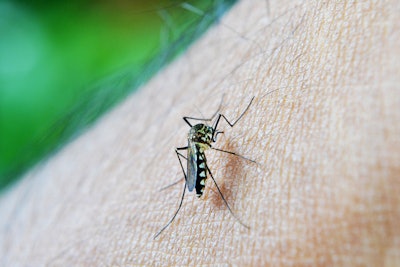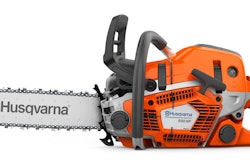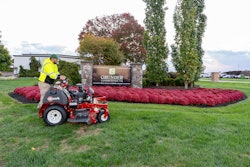 Photo: Pixabay
Photo: PixabayIn the dead of winter, mosquitoes may seem like the least of your worries, but if you are looking for an additional service to offer this year, mosquito control is one area to consider.
There are over 3,000 different species of mosquitoes around the world and currently 176 of those species can be found in the United States. While most are only a nuisance, certain species of mosquitoes can spread diseases like malaria, yellow fever, West Nile virus and Zika virus.
If your customer has just spent a considerable amount on having their landscape redesigned, the last thing they want is to be pestered by pesky mosquitoes that could also carry the threat of disease.
As this service becomes more popular with homeowners trying to reclaim their outdoor spaces, this is what you need to keep in mind when debating if this service is a good fit for you.
Franchising
Like Christmas lighting, there are a number of franchising options when it comes to adding on mosquito control services, including Mosquito Squad, Mosquito Shield and Mosquito Joe.
By opting to franchise, you can have someone guide you through the process of getting set up and you are given a protected territory that allows only your company to market to customers in that area.
Depending on which franchise you go with will determine what sort of product you end up using. Mosquito Joe uses synthetic pyrethroids in their products while Mosquito Shield uses a blend of all-natural oils.
According to Mosquito Joe, the startup fees will cost $95,600-$140,000 depending on the area you live in. Aspects like franchising costs, treatment methods and the franchise’s culture should all be considered if this is the route you choose to take.
Region
Your location will have an effect on how popular your mosquito service is, with the South obviously being an ideal location to take advantage of.
“Mosquito control certainly has regions where it is more popular than others,” says Dr. Kurt Vandock, head of public health for Bayer. “In regions where public municipal mosquito control is not present, private residential mosquito control is certainly more popular. What is important to note is that the approach to mosquito control varies based on season, geography and environmental factors that influence the type of mosquito one may encounter.”
Vandock says Bayer offers technical expertise to customers who want to create a customized program for their specific region.
“Most programs in the United States run from April-October,” Vandock says. “Preventive measures such as breeding site mitigation can be accomplished in off peak months.”
Areas that are hit by hurricanes and massive flooding can expect larger mosquito populations. According to Vandock, some floodwater mosquitoes can breed and lay eggs that may not hatch for years.
“The receding waters leave pools of standing water in new areas where they didn’t previously exist,” says Joe Conlon, American Mosquito Control Association (AMCA) technical advisor. “Combined with the summer heat speeding reproduction, the result can be a drastic increase in mosquito populations.”
Proper mosquito management
Just like any other integrated pest management strategy, mosquito control should follow those basic principles. You should always make a point to visit a potential client’s property to assess what conditions are encouraging mosquito breeding.
A stagnant bird bath is something that can easily be removed, but if a client has a creek on their property, you may not be able to guarantee the level of control they are looking for. Larvicides can be applied to areas of stagnant water that cannot be removed to prevent the development of immature mosquitos.
Once you’ve worked on reducing possible breeding locations, you can treat existing mosquito problems with an adulticide like DeltaGard, which can kill mosquitos in as few as 10-15 minutes.
After this initial treatment, you can switch to routine inspections and applying preventative treatments. The type of products you use will dictate how frequently you’ll need to go back and treat.
“With sustainable and innovative products such as Suspend PolyZone, treatment intervals could range from 60-90 days,” Vandock says. “The frequency is dependent on mosquito pressure and use rates.”
Whatever products you decide to use, always take care to read the label and follow the recommendations to ensure only the target pest is impacted. Before spraying a property, take note of natural bodies of water, food surfaces and edible plants. Great care should be taken so these are not treated, as certain products can kill fish in a pond and make vegetables unsafe to eat.
“While a comprehensive approach to mosquito control (adult and larvae) is preferable, in most cases, it is the adults that are impacting the quality of life of the average homeowner,” Vandock says. “In such cases, barrier treatments for adult mosquito suppression is the best approach. Products such as Suspend PolyZone that resist outdoor weathering and were specifically designed for mosquito control should be a landscaper’s first choice.”
As for whether offering mosquito control is profitable for you, Vandock says it is highly variable.
For Heroes Management Services, based in Omaha, Nebraska, owner Taylor Olberding says mosquito spraying is very profitable. His company offers mosquito control through the franchise Mosquito Shield.
“Quantity is the killer,” he says. “It’s just like fertilizing. We need maybe 200 clients to keep one guy busy.”










